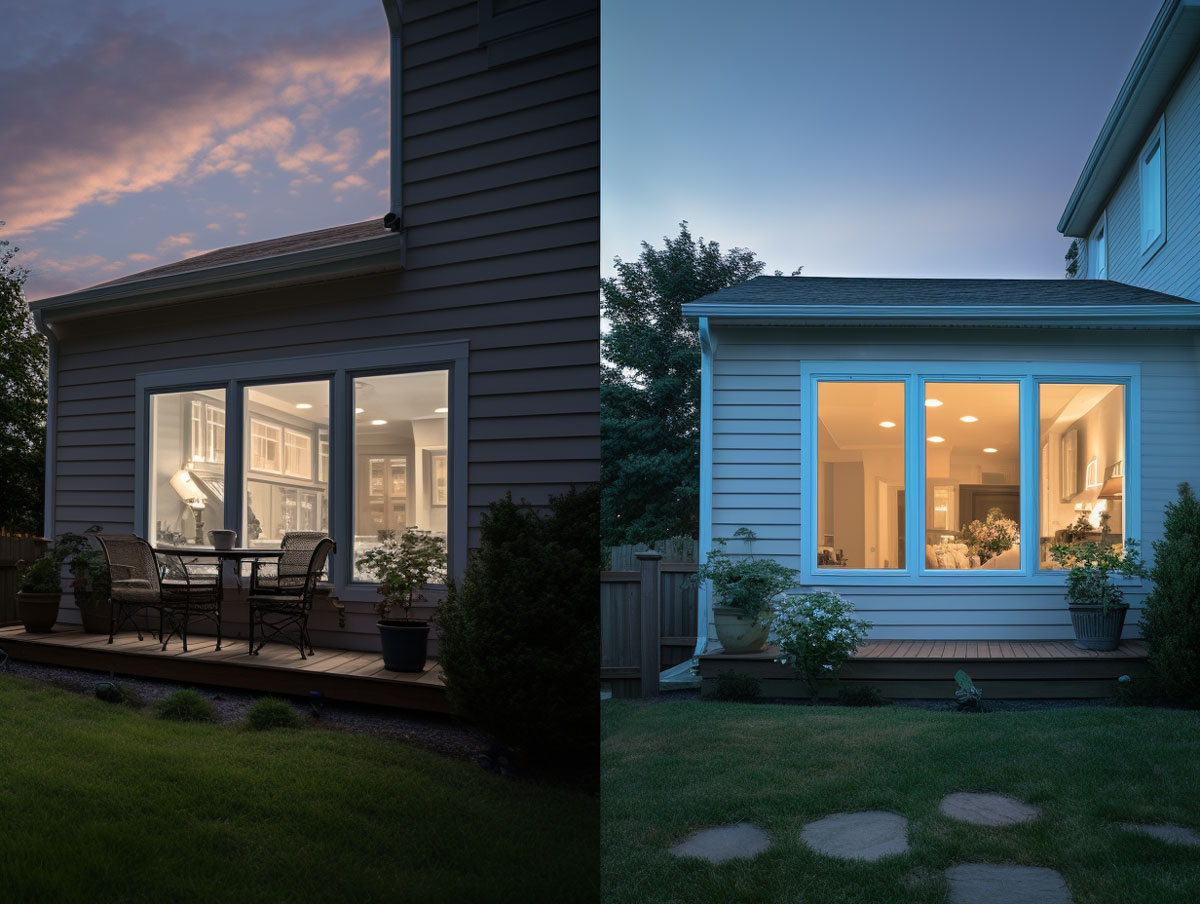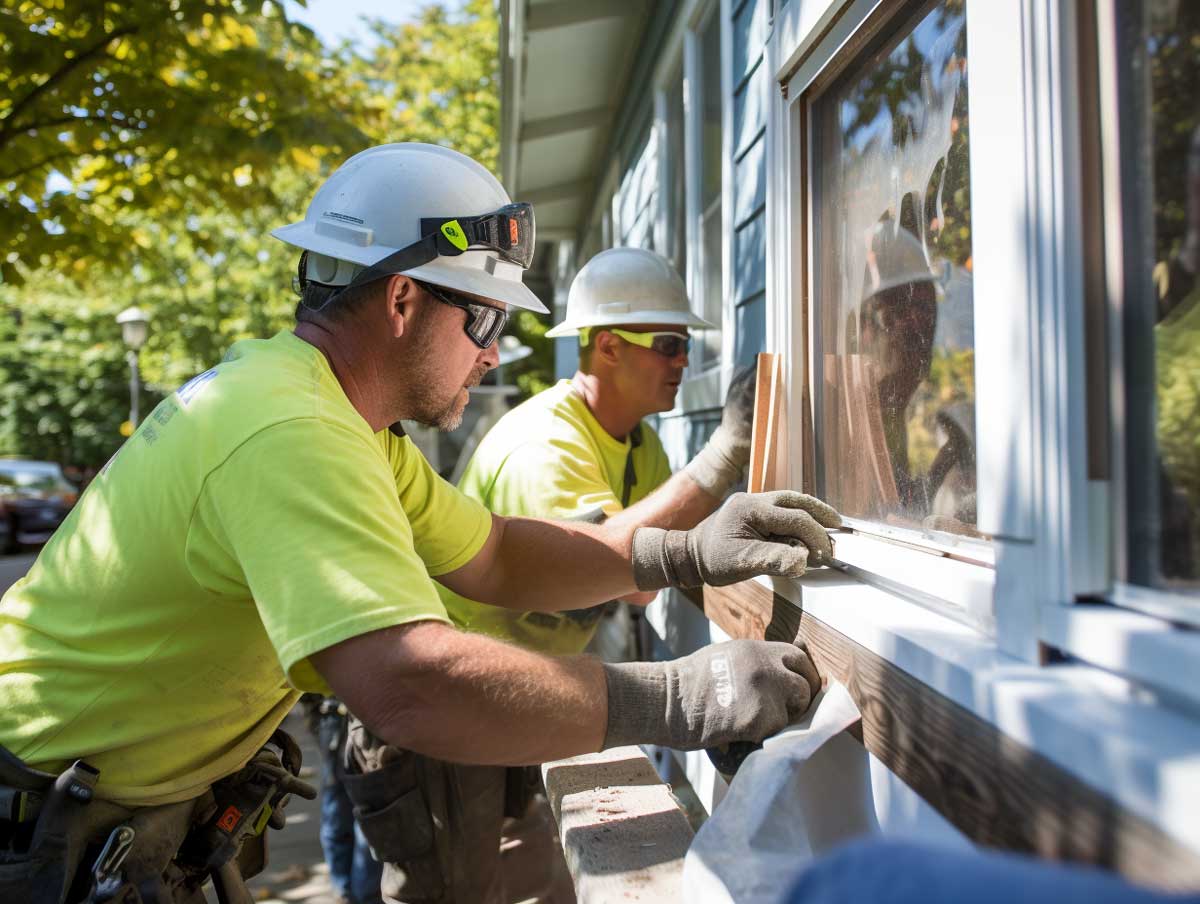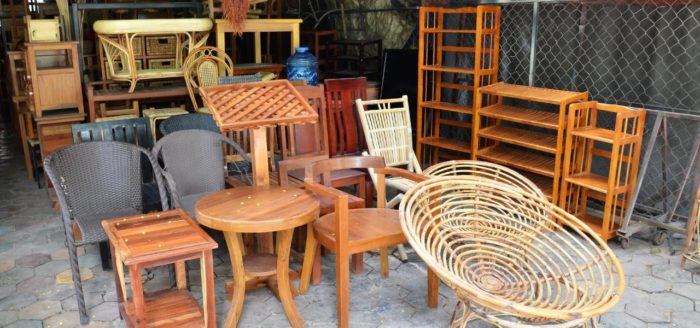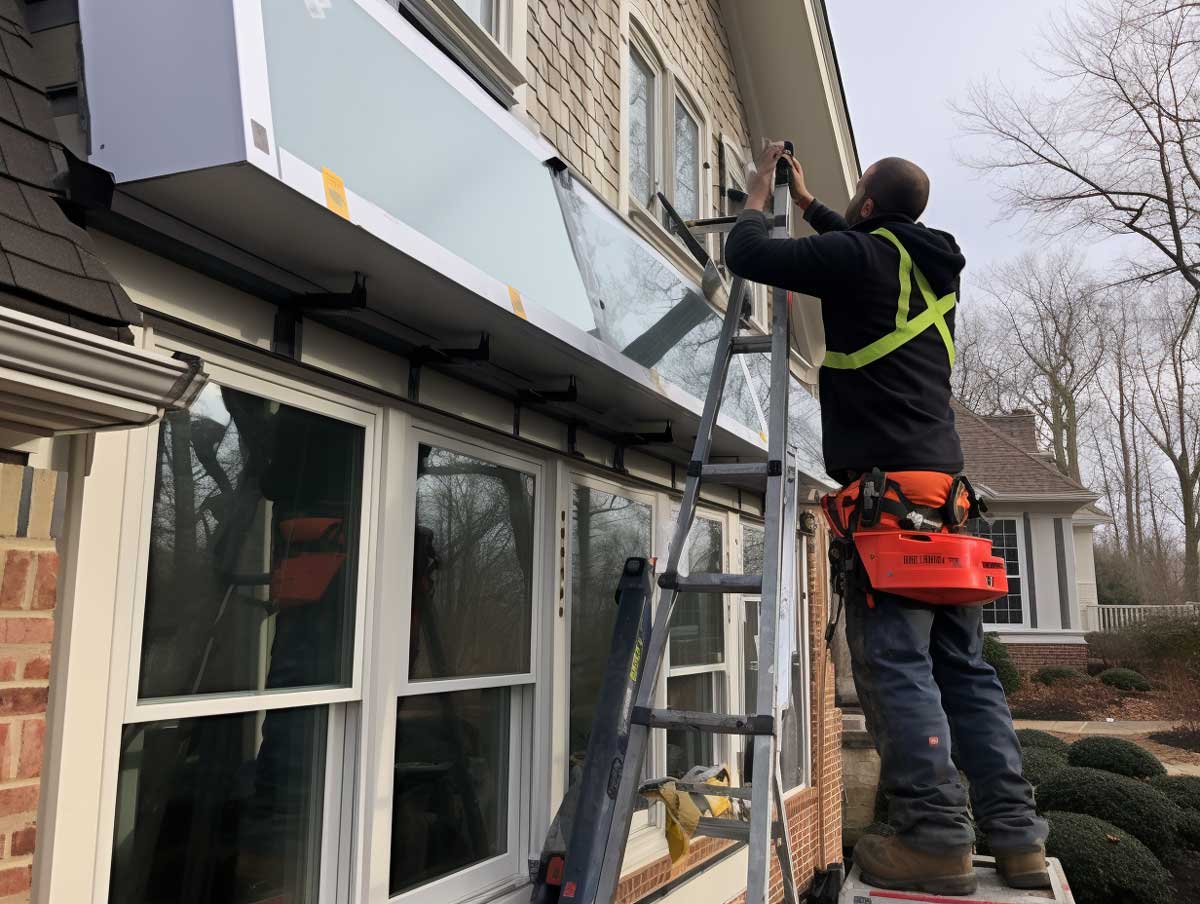In the midst of winter, a functioning furnace is not just a luxury—it's a necessity. For low-income households, the cost of replacing a malfunctioning furnace can be a significant financial burden. However, there are avenues available to secure low-income furnace replacement.
This guide provides a systematic, step-by-step approach to navigating this process, ensuring that every household can stay warm, regardless of their financial situation.
Assess The Need For Replacement
Before diving into the process, it's crucial to determine whether your furnace truly needs replacement or if a repair might suffice.
-
Inspection: Start by hiring a licensed HVAC technician to inspect your furnace. They can provide a detailed assessment of its condition and lifespan.
-
Cost Analysis: Compare the cost of repairs to the cost of a new furnace. If repairs are more than 50% of the cost of a new unit, replacement might be the more economical choice in the long run.
Research Local Assistance Programs
Many states and local municipalities offer assistance programs specifically designed for low-income households.
-
State Energy Programs: Most states have energy assistance programs that provide financial aid for heating and cooling needs. Check with your state's Department of Energy or equivalent agency.
-
Utility Companies: Some utility companies offer rebate programs or discounts for energy-efficient furnace replacements. Contact your local utility provider for details.
Explore Federal Assistance
The federal government provides resources to assist low-income households with their heating needs.
-
LIHEAP: The Low Income Home Energy Assistance Program (LIHEAP) is a federally funded initiative that assists families with their home energy bills. They may provide funds for furnace replacement or repair.
-
Weatherization Assistance Program (WAP): This program helps low-income households improve energy efficiency, which can include furnace replacement. Check if you qualify and apply through your state's designated agency.
Consider Non-Profit Organizations
Several non-profit organizations aim to assist families in need.
-
Habitat For Humanity: Known for building homes, they also have programs that help with home repairs, including furnace replacement.
-
Local Charities: Churches, community groups, and local charities often have funds or programs dedicated to helping families in need. It's worth reaching out to see if they can assist.
Evaluate Financing Options
If you can't secure full funding, consider financing options that cater to low-income households.
-
Energy-Efficient Mortgages (EEMs): These are designed for energy-saving improvements, including furnace replacement. They often come with lower interest rates and flexible payment terms.
-
Personal Loans: Some banks and credit unions offer personal loans with favorable terms for essential home repairs.
Opt For Energy-Efficient Models
When selecting a new furnace, prioritize energy efficiency.
-
Energy Star Ratings: Furnaces with an Energy Star rating are at least 15% more efficient than standard models. They might cost more upfront but will save money in the long run through reduced energy bills.
-
Tax Credits: The federal government sometimes offers tax credits for installing energy-efficient appliances. Check current offers and eligibility criteria.
Installation
Once you've secured funding and chosen a furnace, ensure it's installed correctly.
-
Hire Professionals: Always hire licensed and insured professionals for installation. This ensures the job is done right and maintains the warranty.
-
Post-Installation Inspection: After installation, have the furnace inspected to ensure it's operating efficiently and safely.
Understanding Government Grants For HVAC Systems
While the federal government does not directly provide grants to individuals, it does fund several programs that can assist low-income families with their heating, ventilation, and air conditioning (HVAC) needs. These programs can significantly reduce the costs associated with HVAC systems, including the purchase, installation, and operation of these systems. The key to unlocking these benefits lies in understanding the various programs and how they can translate into tangible savings for consumers.
Financing Options For HVAC Systems
Consumers can create their own non-government grants for energy-efficient HVAC systems by focusing on the total cost of ownership. The money saved on electricity and gas could exceed the investment in upgraded equipment. No credit check HVAC financing makes the numbers work for families by matching the monthly energy savings to the equipment investment. This approach can result in a free system upgrade, where the monthly payments might be smaller than the energy savings.
Government Programs For HVAC Systems
Several government programs can translate into free government programs for furnace replacement for low-income families, seniors, and other hard-working American taxpayers.
-
The Inflation Reduction Act (IRA): This is the newest government grant for HVAC conversion systems. IRA includes rebates and tax credits for upgraded equipment that uses cleaner energy. The IRA provides up to $14,000 in rebates for purchasing and installing specific equipment and related upgrades consuming cleaner electricity instead of dirtier natural gas.
-
Section 504: This program, operated by the US Department of Agriculture, provides up to $10,000 of assistance. Recipients do not have to repay the money when remediating health and safety hazards. This program could become a government grant for HVAC conversion systems for senior citizens.
-
Energy Star: The Environmental Protection Agency runs the Energy Star program, which provides rebates and tax credits to make energy-efficient equipment purchases more affordable for consumers. Tax credits equal 10% of costs up to $500 or a specific amount from $50-$300.
Free Air Conditioners From The Government
The same grant programs noted above can morph into free air conditioners from the government for many low-income families. Also, other initiatives can help seniors and the disabled stay cool during the hot summer months.
-
Energy-Saving AC: Low-income families could get a free air conditioner from the government if a new unit saves enough energy. Plus, they might qualify for extra help to pay the electricity bill while it cools their house during the summer.
-
AC For Seniors: Senior citizens have at least three additional avenues to get free air conditioners from the government. The elderly are especially vulnerable to excessive heat, so finding low-cost ways to keep cool is critical when you live on a fixed income.
-
AC For Disabled: People with disabilities have four similar avenues to qualify for free air conditioning from the government. Disabled individuals are also vulnerable to excessive heat and often head low-income families.
By understanding these programs and how they can be leveraged, individuals and families can secure the HVAC systems they need without incurring financial hardship. It's all about knowing where to look and how to apply these resources effectively.
Heating System Repair & Replacement Program (HEARTWAP)
The Heating Emergency Assistance Retrofit Task Weatherization Assistance Program (HEARTWAP) is a state-run initiative in Massachusetts that provides heating system repair and replacement services to low-income households. The program is primarily designed to serve homeowners and is administered by a network of local agencies. In most areas, the same agency that administers the Low-Income Home Energy Assistance Program (LIHEAP) also administers HEARTWAP. The program contracts with heating system service companies to complete the work for eligible households.
Free Heating Repair Replacement Program
The Free Heating Repair Replacement Program is a nationwide initiative that provides for the replacement or repair of a home's primary heating system, such as a furnace, fireplace, HVAC system, or water heater. The program is often administered by local community action agencies or other local non-profit organizations. The program is available as a result of a grant established by the U.S. Department of Housing and Urban Development.
HE+ Furnace Program
The HE+ Furnace Program is a year-round program in Wisconsin that provides assistance to eligible low-income households when their primary heating system no longer provides heat, is inoperable, or becomes unsafe. The Wisconsin Home Energy Assistance Program (WHEAP) Agency verifies applicant eligibility and reserves funds when completing the referral to the Weatherization Agency. WHEAP and Weatherization agencies work cooperatively to ensure program goals and requirements are met while providing timely delivery of service.
Central Heating Improvement Program (CHIP)
MaineHousing’s Central Heating Improvement Program (CHIP) provides heating system repair and replacement services to low-income households. Priority is given to households that have no heat. CHIP is administered by a network of local community action agencies, the same agencies that administer the Home Energy Assistance Program (HEAP). In some instances, households may be required to provide a co-payment towards the overall expense.
Frequently Asked Questions
To provide a better understanding of how to access low-income furnace replacement assistance, we have addressed some of the more common queries people have.
What is the Heating System Repair & Replacement Program (HEARTWAP)?
HEARTWAP is a state-run initiative in Massachusetts that provides heating system repair and replacement services to low-income households.
What is the Free Heating Repair Replacement Program?
This is a nationwide initiative that provides for the replacement or repair of a home's primary heating system. It is often administered by local community action agencies or other local non-profit organizations.
What is the HE+ Furnace Program?
The HE+ Furnace Program is a year-round program in Wisconsin that provides assistance to eligible low-income households when their primary heating system no longer provides heat, is inoperable, or becomes unsafe.
What is the Central Heating Improvement Program (CHIP)?
CHIP is a program by MaineHousing that provides heating system repair and replacement services to low-income households. Priority is given to households that have no heat.
Are there any income restrictions for these programs?
Yes, these programs are designed to assist low-income households. Each program has its own specific income eligibility requirements.
Can landlords apply for these programs on behalf of their tenants?
Some programs are designed primarily to serve homeowners. However, certain programs may provide limited benefits for rental properties occupied by eligible tenants.
Securing Low-Income Furnace Replacement
securing low-income furnace replacement doesn't have to be a daunting task. With a systematic approach, it's possible to navigate the various resources available at the local, state, and federal levels, as well as non-profit organizations. By assessing the need for replacement, researching assistance programs, exploring federal assistance, considering non-profit organizations, evaluating financing options, and opting for energy-efficient models, low-income households can ensure they stay warm during the winter months without incurring financial hardship. Furthermore, understanding government grants for HVAC systems, financing options, and specific programs like the Heating System Repair & Replacement Program (HEARTWAP), Free Heating Repair Replacement Program, HE+ Furnace Program, and Central Heating Improvement Program (CHIP) can provide additional avenues for assistance. Remember, the key to unlocking these benefits lies in understanding the various programs and how they can translate into tangible savings for consumers. Stay warm, stay safe, and remember, help is available.
Explore our resources to learn more about home improvement aid programs. Check out Gov Relations and our guide to getting a free air conditioner from HEAP.







